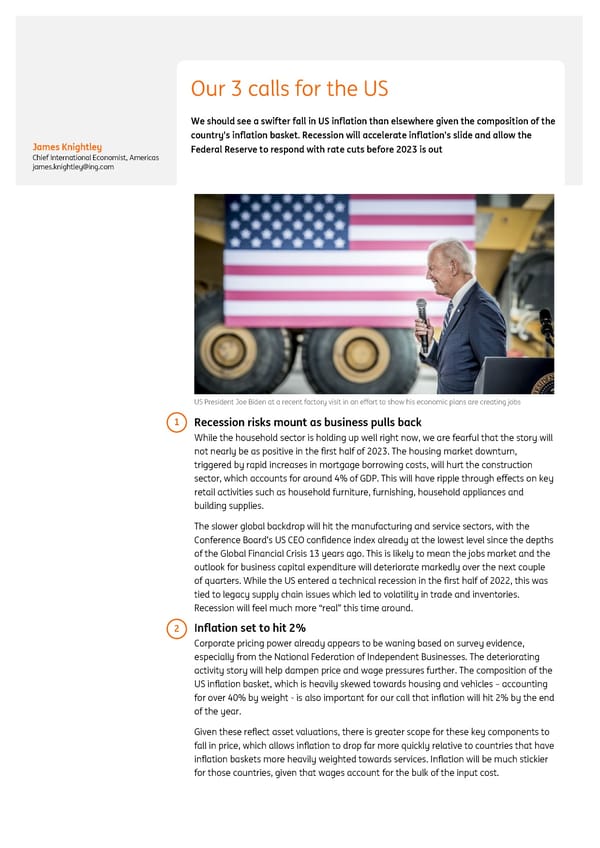ING global economic outlook 2023 December 2022 Our 3 calls for the US We should see a swifter fall in US inflation than elsewhere given the composition of the country's inflation basket. Recession will accelerate inflation's slide and allow the James Knightley Federal Reserve to respond with rate cuts before 2023 is out Chief International Economist, Americas [email protected] US President Joe Biden at a recent factory visit in an effort to show his economic plans are creating jobs 1 Recession risks mount as business pulls back While the household sector is holding up well right now, we are fearful that the story will not nearly be as positive in the first half of 2023. The housing market downturn, triggered by rapid increases in mortgage borrowing costs, will hurt the construction sector, which accounts for around 4% of GDP. This will have ripple through effects on key retail activities such as household furniture, furnishing, household appliances and building supplies. The slower global backdrop will hit the manufacturing and service sectors, with the Conference Board’s US CEO confidence index already at the lowest level since the depths of the Global Financial Crisis 13 years ago. This is likely to mean the jobs market and the outlook for business capital expenditure will deteriorate markedly over the next couple of quarters. While the US entered a technical recession in the first half of 2022, this was tied to legacy supply chain issues which led to volatility in trade and inventories. Recession will feel much more “real” this time around. 2 Inflation set to hit 2% Corporate pricing power already appears to be waning based on survey evidence, especially from the National Federation of Independent Businesses. The deteriorating activity story will help dampen price and wage pressures further. The composition of the US inflation basket, which is heavily skewed towards housing and vehicles – accounting for over 40% by weight - is also important for our call that inflation will hit 2% by the end of the year. Given these reflect asset valuations, there is greater scope for these key components to fall in price, which allows inflation to drop far more quickly relative to countries that have inflation baskets more heavily weighted towards services. Inflation will be much stickier for those countries, given that wages account for the bulk of the input cost.
 ING Global Economic Outlook 2023 Page 22 Page 24
ING Global Economic Outlook 2023 Page 22 Page 24